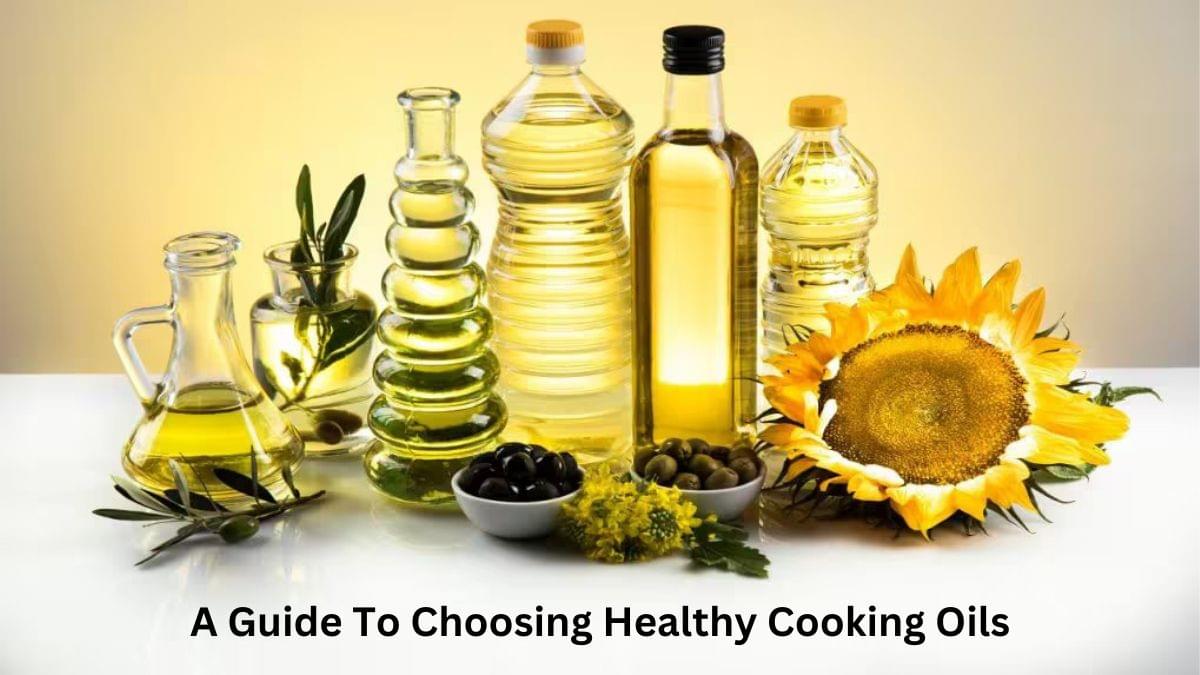
Cooking oil is a crucial component in Indian cuisine, used to enhance the flavor, texture, and aroma of dishes. Common oils used include mustard oil, coconut oil, sesame oil, sunflower oil, and ghee. Each oil has its own unique flavor profile and nutritional benefits. Tempering, a key technique, involves heating whole spices in hot oil to release their flavors before adding them to dishes. However, exposure to fluctuating temperatures in Indian kitchens can alter the oil's composition and flavor. To avoid this, cooking oils with high smoke points are used.
Types of Cooking Oils
- Olive Oil: Known for its heart-healthy monounsaturated fats, olive oil adds a rich flavor to dishes and is ideal for sauteing, frying, and salad dressings.
- Coconut Oil: With its distinct flavor and high smoke point, coconut oil is versatile for both cooking and baking, and it contains medium-chain triglycerides (MCTs) believed to have various health benefits.
- Canola Oil: Low in saturated fat and high in heart-healthy monounsaturated fats, canola oil has a neutral flavor and is suitable for frying, baking, and salad dressings.
- Avocado Oil: Rich in monounsaturated fats and vitamin E, avocado oil has a mild flavor and a high smoke point, making it perfect for high-heat cooking methods like frying and grilling.
- Sesame Oil: A staple in Asian cuisine, sesame oil adds a nutty flavor to dishes and is commonly used for stir-frying, marinades, and dressings.
- Peanut Oil: With a high smoke point and a subtle nutty flavor, peanut oil is excellent for frying, deep-frying, and sauteing, and it is commonly used in Asian and Southern cuisines.
- Corn Oil: Neutral in flavor and with a high smoke point, corn oil is suitable for frying, baking, and salad dressings, and it contains heart-healthy unsaturated fats.
- Sunflower Oil: Light in flavor and with a high smoke point, sunflower oil is versatile for frying, baking, and sauteing, and it is rich in vitamin E and unsaturated fats.
- Soybean Oil: Widely used in commercial cooking and food processing, soybean oil has a neutral flavor and a high smoke point, making it suitable for frying, baking, and salad dressings.
- Vegetable Oil: A blend of various plant oils, vegetable oil has a neutral flavor and a high smoke point, making it suitable for a wide range of cooking methods, from frying to baking.
Understanding the Smoke Points of Cooking Oils
Smoke points are essential in cooking as they show the temperature at which an oil breaks down and generates smoke. High smoke points are suitable for high-heat cooking methods like frying, sauteing, and deep-frying, resulting in crispier, more evenly cooked foods. Lower smoke points are better for low-heat cooking methods like salad dressings, marinades, and light sauteing. Heating oils beyond their smoke points can cause them to break down, release harmful compounds, and produce off-flavors. Understanding smoke points helps cooks make informed choices about which oils to use for different culinary applications, enhancing the quality of their dishes while preserving their health benefits.

Cooking oils are a important aspect of health, with different nutritional profiles and health benefits. Monounsaturated and polyunsaturated fats like olive oil, avocado oil, and canola oil are considered heart-healthy, helping lower cholesterol levels and reducing the risk of heart disease when used in moderation. However, saturated fats like coconut oil and palm oil may raise cholesterol levels and increase the risk of heart disease if consumed in excess.
Some research suggests that certain saturated fats may have neutral or beneficial effects on cholesterol levels. Omega-3 fatty acids like flaxseed and walnut oil offer anti-inflammatory properties and may reduce the risk of chronic diseases like heart disease and arthritis. Considering individual health needs and dietary preferences is also important. For instance, individuals with nut allergies should avoid nuts-derived oils, while those following a vegan or plant-based diet may prefer plant-based oils. Maintaining a balanced diet with a variety of healthy fats is crucial for overall health.
Health Considerations
Cooking oils are a important aspect of health, with different nutritional profiles and health benefits. Monounsaturated and polyunsaturated fats like olive oil, avocado oil, and canola oil are considered heart-healthy, helping lower cholesterol levels and reducing the risk of heart disease when used in moderation. However, saturated fats like coconut oil and palm oil may raise cholesterol levels and increase the risk of heart disease if consumed in excess.
Some research suggests that certain saturated fats may have neutral or beneficial effects on cholesterol levels. Omega-3 fatty acids like flaxseed and walnut oil offer anti-inflammatory properties and may reduce the risk of chronic diseases like heart disease and arthritis. Considering individual health needs and dietary preferences is also important. For instance, individuals with nut allergies should avoid nuts-derived oils, while those following a vegan or plant-based diet may prefer plant-based oils. Maintaining a balanced diet with a variety of healthy fats is crucial for overall health.
Also Read - Top 7 Agricultural Products Exported by India
Cooking Uses and Applications
Cooking oils are versatile ingredients with a wide range of uses and applications in the kitchen. Here are some common cooking uses and applications for different types of oils:
1. Frying: High-smoke oils like peanut, canola, and sunflower are ideal for frying high-temperature foods, creating crispy exteriors and sealing in moisture for delicious fried dishes.
2. Sauteing: Oils with medium-high smoke points, such as olive oil, avocado oil, and sesame oil, are perfect for sauteing vegetables, meats, and seafood. They add flavor and richness to dishes while preventing sticking and ensuring even cooking.
3. Salad Dressings: Lighter oils with delicate flavors, such as extra virgin olive oil and walnut oil, are commonly used in salad dressings. Their fruity and nutty notes enhance the taste of fresh greens and vegetables without overpowering the dish.
4. Baking: Neutral-flavored oils like vegetable oil and canola oil are frequently used in baking to add moisture and texture to cakes, muffins, and cookies. They also help create a tender crumb and prevent baked goods from becoming dry.
5. Marinades: Oils infused with herbs, spices, and aromatics, such as garlic-infused olive oil or chili-infused sesame oil, are excellent for marinating meats, tofu, and vegetables. They impart flavor and tenderize ingredients while enhancing the overall taste of the dish.
6. Grilling: Oils with high smoke points, like grapeseed oil and avocado oil, are suitable for brushing onto meats, seafood, and vegetables before grilling. They help prevent sticking and create beautiful grill marks while adding a subtle flavor boost.
7. Stir-Frying: Light and neutral oils such as peanut oil, soybean oil, and rice bran oil are commonly used in stir-frying.
Conclusion
Choosing healthy cooking oils is important for maintaining overall well-being and enhancing the nutritional value of meals. Consider factors like smoke point, fatty acid composition, and potential health benefits. Choose oils high in heart-healthy monounsaturated and polyunsaturated fats like olive oil, avocado oil, and canola oil, while limiting saturated fats like coconut and palm oil. Choose minimally processed or cold-pressed oils to retain natural nutrients and flavors.

